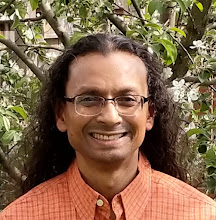The above picture is linked to an article about Dachniks and their Dachas, which is to a large degree about gardening. For Anastasia, plants essentially have unlimited potential in terms of what they can offer us. This chapter and even more so the next chapter begin exploring this concept.

"You see, the society you are living in today can learn a lot from communication with the plants to be found around dachas. Yes, I am talking about the dachas, where you personally know every individual plant in your garden-plot, and not those huge, impersonal fields cultivated by monstrous, senseless machines. People feel better when they are working in their dacha plots. Many of them end up living longer. They become kinder. And it is these very dachniks that can pave the way for society to become aware of how destructive the technocratic path can be."
Before going deeper into what else plants can do for us, I want to quote an earlier conversation between Anastasia and Vladimir from chapter 3 on water.

Less than ten or fifteen metres from the glade, beyond a clump of bushes, we came across a small taiga lake. Anastasia quickly scooped up a small quantity of water in her cupped hands and raised it to my face.
"Here is some water. Drink it, please."
"What, are you crazy? How can you drink raw water out of some puddle in the woods? You saw how I was drinking 'borzhomi'. On board ship even for washing we pass the river water through a special filter, chlorinate it, ozonise it."
"It is not a puddle, Vladimir. This is pure, living water! Good water! Not half-destroyed water like yours. You can drink this water, just like mother's milk! Look."
Anastasia raised her cupped hands to her lips and took a drink.
I'll end with another quote from chapter 10, where Anastasia begins to introduce the divine plan.

"Everything - but everything - on Earth, every blade of grass, every insect, has been created for Man, and everything has its individual appointed task to perform in the service of Man. The multitude of medicinal plants are a confirmation of this. But people in your world know very little about how to benefit from the opportunities they are presented with - about how to take full advantage of them."
In the next chapter, Anastasia begins explaining in more practical terms how we can benefit from these opportunities.



No comments:
Post a Comment